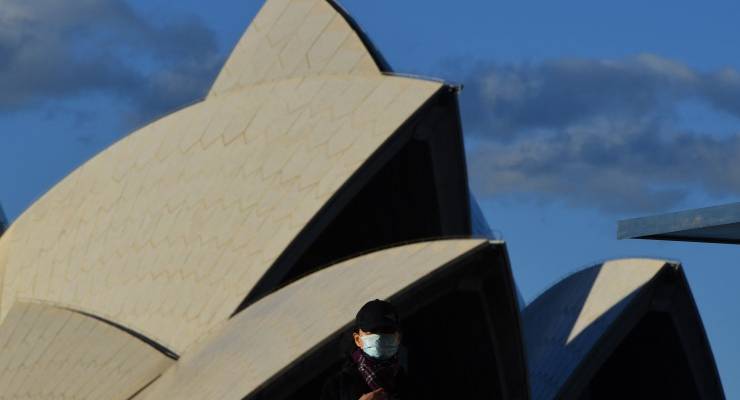
It ain’t what you don’t know that gets you into trouble. It’s what you know for sure that just ain’t so.
Attributed to various
What screwed us up, you know, was jumping the gun. Back in May, everyone was so sure Melbourne was the outbreak capital of Australia. And yes, Melbourne was the perennial hotspot, with waves of COVID hitting the city in March 2020, June 2020, February 2021 and May 2021.
A great deal of ink was spilled on the topic of Melbourne’s virus-prone nature, with demographers and chief health officers, public transport experts and epidemiologists all pitching in.
But explanations are only helpful when explanations are right. When they are wrong, they can do great harm. The tendency to produce theories prematurely is a very human trait, and one of our worst.
In the end it was probably mostly just bad luck that Victoria had the worst of the early pandemic. Sydney, Brisbane and other cities were likely also to be prone to outbreaks. What led Victoria down a path of lockdown after lockdown was chance.
Chance: that horrid anti-narrative, that meaning-destroyer, that stochastic roulette wheel that governs so much more than we give it credit for.
Nobody likes randomness. Our brains abhor it. A pattern need appear in a dataset only for a moment for a human minds to latch on to it. So it was that after only a tiny handful of Melbourne-centric lockdowns, we got long and in-depth analyses of why Melbourne was so outbreak-prone.
A good gambler knows that if their night at the casino starts with a small run of good hands, that is inconsequential. But a bad gambler might feel their luck is up and start betting a bit bigger. The latter can be applied to Sydney in 2021. On the basis of scant data, it bet it could keep a developing outbreak in hand.
This premature theorising helped lend Sydney a liberated feeling, via a narrative that it was in some way “virus-resistant”. Which in turn delayed the latest lockdown, made the current outbreak worse, will kill a number of people, and cost the economy billions.
Acknowledging that the virus can and will spread in any and all state capitals, and indeed in any place where people gather, is one point of this story. But there is a broader lesson, one we may take with us beyond the pandemic. Which is to resist the meaning-making part of our brains.
Nassim Nicholas Taleb, author of the book Black Swans, says the hardest thing he does is not theorise. It takes an enormous reserve of effort to dodge the brain’s natural tendency to explain, he argues.
“Theorising can correspond to the absence of willed activity,” he wrote. “Not theorising is an act.”
Consider the turkey. The turkey, upon observing all the evidence, concludes he will be fed every day at 7am and otherwise be left undisturbed. The turkey settles in for a long and comfortable life. On Christmas Eve, he discovers an important exception to the rule. He concluded too soon.
The goal, Taleb likes to say, is to avoid being the turkey.
This lesson can be taken to many other places:
Societies built on slow-moving tectonic plates or slowly eroding peninsulas may be guilty of concluding their location is safe based on too little evidence. The Pulitzer Prize-winning story of Seattle and the terrible, rarely moving fault line it’s built atop is one example.
What is so terrifying in the case of Seattle is that hundreds of years of data may be too little. Seattle will get very big before the fault unleashes its power and kills thousands.
We can apply the lesson in shorter time frames, too. Mainstream economists’ conclusion in the mid-2000s that we had entered a “great moderation” was based on a lovely calm patch of data. In fact an enormous financial eruption was lurking in 2007-08.
Similarly, the “golden arches theory” of international relations — which asserts (somewhat incorrectly) that two countries with a McDonald’s franchise have never gone to war after those franchises were built, and insinuates that global capital helps preserve peace — relies on a narrow dataset and a short period in which McDonald’s has been a global presence. There are a lot of McDonald’s in China, and complacently relying on business links to preserve peace with that country would be a tremendous risk.
Whether it be the risks of nuclear weapons proliferation (not used in 75 years!) or the risks posed by climate change (so far not so bad, right?) humans are prone to concluding too soon.
We need to will ourselves, forcibly, to un-conclude.








Crikey is committed to hosting lively discussions. Help us keep the conversation useful, interesting and welcoming. We aim to publish comments quickly in the interest of promoting robust conversation, but we’re a small team and we deploy filters to protect against legal risk. Occasionally your comment may be held up while we review, but we’re working as fast as we can to keep the conversation rolling.
The Crikey comment section is members-only content. Please subscribe to leave a comment.
The Crikey comment section is members-only content. Please login to leave a comment.